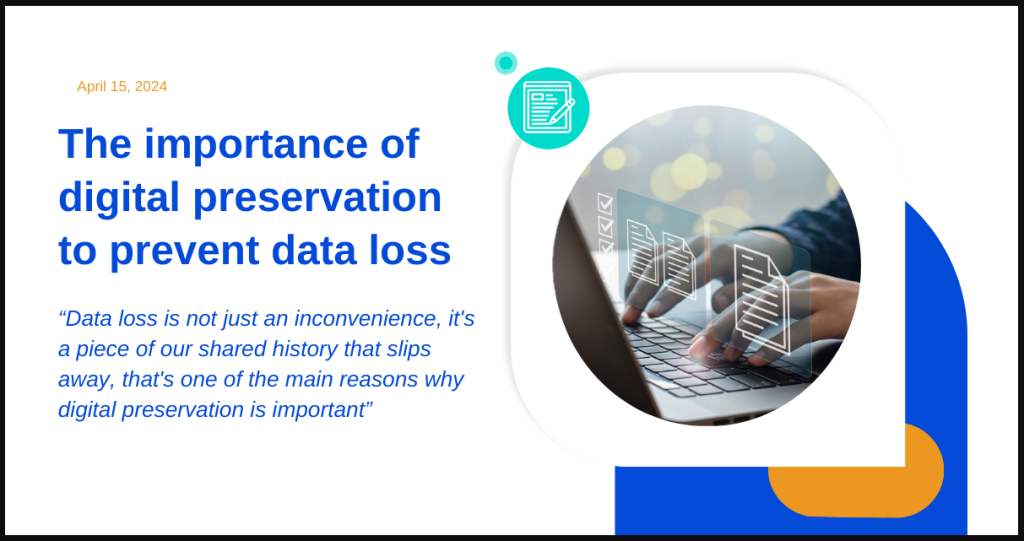Your cart is currently empty!
Safeguarding Nigeria’s Future: The Vital Role of Digital Data and Data Security in 2024
In the digital age, data has become the new currency, powering economies, driving innovation, and shaping societies. For Nigeria, a country experiencing rapid technological advancement and digital transformation, the importance of digital data and robust data security measures cannot be overstated. As we delve into 2024, Nigeria finds itself at a critical juncture where harnessing the potential of digital data while ensuring its protection is paramount for sustainable development and national security.
The Digital Revolution in Nigeria
Nigeria has witnessed a significant surge in digital adoption over the past decade, fueled by factors such as increasing internet penetration, the proliferation of mobile devices, and government initiatives to promote digital inclusion. From e-commerce and digital banking to telemedicine and e-governance, the digital landscape in Nigeria has expanded rapidly, revolutionizing how individuals interact, businesses operate, and governments deliver services.
The Value of Digital Data
At the heart of Nigeria’s digital transformation lies the wealth of data generated by individuals, businesses, and government agencies. This digital data encompasses a wide array of information, including personal profiles, financial transactions, healthcare records, and demographic statistics. The value of this data extends far beyond its mere existence; it serves as a strategic asset that can drive informed decision-making, enhance service delivery, and spur innovation across various sectors of the economy.
In the realm of healthcare, for instance, digital data analytics can facilitate disease surveillance, predictive modeling, and personalized treatment regimens, leading to improved public health outcomes. Likewise, in the realm of agriculture, data-driven insights on weather patterns, soil conditions, and market trends can empower farmers to optimize crop yields, reduce post-harvest losses, and increase profitability. Furthermore, in the financial sector, data analytics enables banks and financial institutions to assess creditworthiness, detect fraudulent activities, and tailor financial products to the needs of diverse customer segments.
Challenges and Risks of Nigeria’s Digital Data and Data Security
However, amidst the promise and potential of digital data, Nigeria also faces significant challenges and risks related to data security and privacy. As the volume and complexity of digital data continue to grow, so too do the threats posed by cyberattacks, data breaches, and malicious actors seeking to exploit vulnerabilities in the digital ecosystem.
One of the primary concerns is the inadequate infrastructure and cybersecurity capabilities to safeguard against evolving cyber threats effectively. Despite efforts to enhance cybersecurity resilience through legislation, regulations, and capacity-building initiatives, Nigeria still lags behind in terms of cybersecurity readiness, leaving critical infrastructure, government systems, and private enterprises vulnerable to cyber-attacks.
Furthermore, the proliferation of digital platforms and online services has led to an exponential increase in the collection, storage, and sharing of personal data, raising concerns about data privacy and consent. Without robust data protection laws and enforcement mechanisms in place, individuals’ privacy rights may be compromised, leading to unauthorized access, identity theft, and other forms of cybercrime.
The Imperative of Data Security
Against this backdrop, the imperative of data security looms large on Nigeria’s digital agenda in 2024. Safeguarding digital data against unauthorized access, manipulation, and theft is not just a matter of compliance but a fundamental prerequisite for fostering trust, promoting innovation, and ensuring sustainable development in the digital age.

First and foremost, enhancing cybersecurity resilience requires a concerted effort to strengthen Nigeria’s cybersecurity infrastructure and capabilities. This entails investing in state-of-the-art technologies, establishing cybersecurity frameworks, and fostering collaboration among government agencies, industry stakeholders, and international partners to detect, deter, and respond to cyber threats effectively.
Cybersecurity awareness
Moreover, promoting a culture of cybersecurity awareness and education is essential to empower individuals, businesses, and government entities to recognize and mitigate cyber risks proactively. By providing training programs, awareness campaigns, and resources on cybersecurity best practices, Nigeria can build a cyber-savvy workforce capable of identifying cyber threats, protecting sensitive data, and responding to security incidents promptly.
In addition to bolstering cybersecurity defenses, Nigeria must also prioritize the enactment and enforcement of comprehensive data protection laws to safeguard individuals’ privacy rights and regulate the collection, processing, and sharing of personal data. By adopting legal frameworks aligned with international standards such as the General Data Protection Regulation (GDPR), Nigeria can enhance trust in the digital ecosystem, foster cross-border data flows, and attract foreign investment in the digital economy.
Opportunities for Collaboration and Innovation
While the challenges of digital data and data security are formidable, they also present opportunities for collaboration and innovation. Nigeria can leverage partnerships with global cybersecurity firms, research institutions, and international organizations to access expertise, share threat intelligence, and develop tailored solutions to address its unique cybersecurity challenges.
Furthermore, fostering a vibrant ecosystem of cybersecurity startups and technology incubators can stimulate innovation and entrepreneurship in the cybersecurity sector, creating new economic opportunities and positioning Nigeria as a regional hub for cybersecurity excellence.
Conclusion
In conclusion, the importance of digital data and data security for Nigeria in 2024 cannot be overstated. As Nigeria continues its journey towards digital transformation, safeguarding digital data against cyber threats and protecting individuals’ privacy rights are imperative for realizing the full potential of the digital economy and ensuring national security.
By investing in cybersecurity infrastructure, promoting cybersecurity awareness, and enacting robust data protection laws, Nigeria can build a resilient and trustworthy digital ecosystem that fosters innovation, drives economic growth, and enhances the well-being of its citizens in the digital age. As the guardians of Nigeria’s digital future, it is incumbent upon policymakers, industry leaders, and civil society stakeholders to collaborate effectively and prioritize data security as a cornerstone of Nigeria’s sustainable development agenda.
One response to “Safeguarding Nigeria’s Future: The Vital Role of Digital Data and Data Security in 2024”
[…] You may also like: Safeguarding Nigeria’s Future: The Vital Role of Digital Data and Data Security in 2024 […]

Leave a Reply